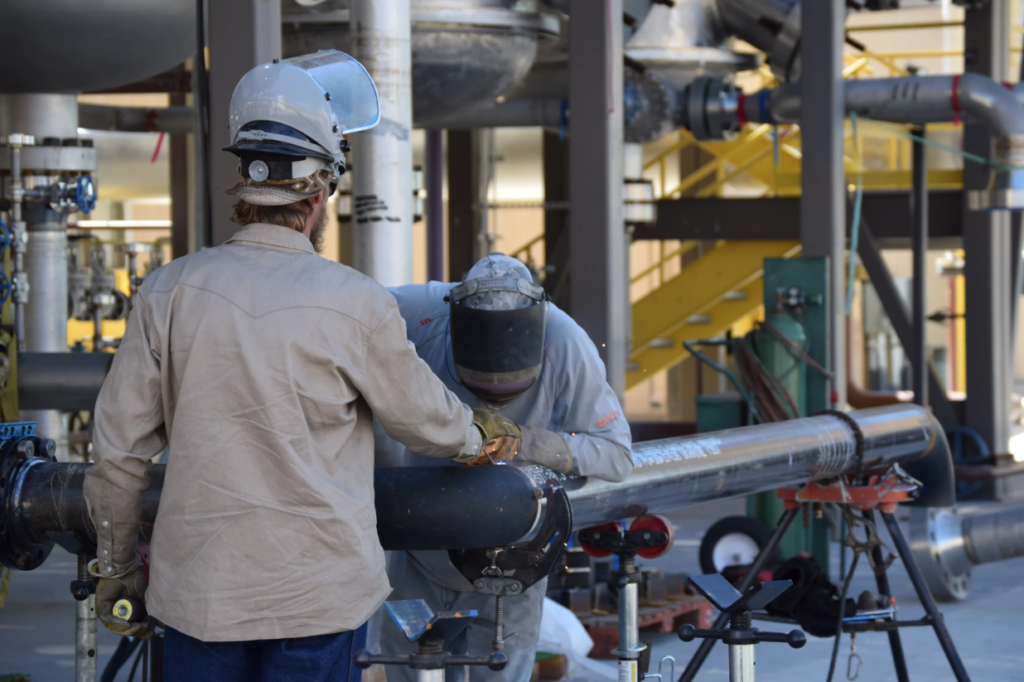
This story was shared with permission from KUNR Public Radio.
A renewable energy company is retrofitting a facility in Storey County that will turn non-edible crops into diesel fuel.
New Rise Renewables, formerly known as Ryze Renewables, is a Reno-based company working to produce a renewable crude oil, which is an emerging competitor against other renewable fuels, like ethanol and biodiesel. Though most fossil fuel alternatives actually contain petroleum products, this newer fuel does not.
Mike Burgess, vice president of construction for Encore, one of the facility’s main contractors, was present at the project’s official launch on August 10, where construction was underway.
At the construction site, Burgess pointed out several giant vats, as well as the network of pipes he calls the “gumball machine.” This is where feedstocks will be digested by bacteria in the process of turning them into crude.
“[This is where] we can take a bigger variety of the corn oil,” said Burgess. “It’s really clean stuff. We’ll treat it to clean it up. And then the gumball machine likes the same feed every day. Nice and easy.”
Randy Soule is the owner of the New Rise facility, and he says renewable diesel is a “drop-in” replacement for petroleum-based diesel — meaning that engines don’t need to be modified to burn it.
“This is now a fuel that you can comfortably put in your car,” said Soule. “[You can] put it in anything that you run, and you don’t have to worry about it. Why do you not have to worry about it? Because we now make the exact molecule that is diesel fuel.”
Burning renewable crude significantly lowers carbon emissions compared to ordinary fossil fuels; however, EPA research suggests that the process of growing feedstocks used in renewable diesel can add to its carbon footprint.
Operations will launch early next year on a line of $112 million in government-backed credit. The company will also create 55 full-time jobs at an average salary of $75,000 per year.
Shelby Herbert is a reporter for KUNR and the Hitchcock Project for Visualizing Science at the Reynolds School of Journalism.





